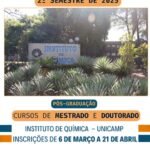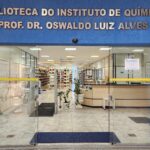Biocompatible hydrogels for green-blue biomedicine
Palestrante: Profa. Dra. Anna Trubetskaya – Nord University – Noruega
Abstract: Natural hydrogels are commonly used as a part of in vitro models in blue-green biomedicine to support the growth and delivery of therapeutic cells for repair of damaged tissue enabling researchers to study the multiple desease progressions. Alginate gels, for example, are biodegradable, however their use is hampered either by poor mechanical properties or low optical transparency required in pre-clinical ophthalmological models. The alginate-based hydrogels were generated with simple and robust cross-linking with CaCl2 and their properties were compared with gellan-methylacrylate and gellan-containing gels. All hydrogels were biocompatible with RPE and ARPE19 cells which were isolated from the pig retina tissue. Gellan-methylacrylate showed slightly better biocompatibility than other materials. The impact of the mechanical strength of gels on the viability of retina cells was less than the adhesion. The suitability of these hydrogels as microenvironments for the culturing of more complicated tissue models remains to be individually assessed later.
Assoc. Prof. Dr. Anna Trubetskaya graduated with a Ph.D. in Chemical Engineering from the Technical University of Denmark in 2016, an M.Sc. in Bio-Engineering at the University of Kassel in 2011, and Diploma in Biotechnology & Process Engineering at the University of Applied Sciences Flensburg in 2009. She studies MBA in climate entrepreneurship at the Warwick Business School. She is an author > 70 scientific articles with the h-index = 27 (google scholar). Anna worked in academia and private sector in the US, Ireland, Sweden, Germany, Finland, Denmark, and currently in Norway. Anna is a director of the BSc program in “Sustainable bioproduction” at Nord University and an active member of the American Society of Chemical Engineers society (AIChE) since 2014.




